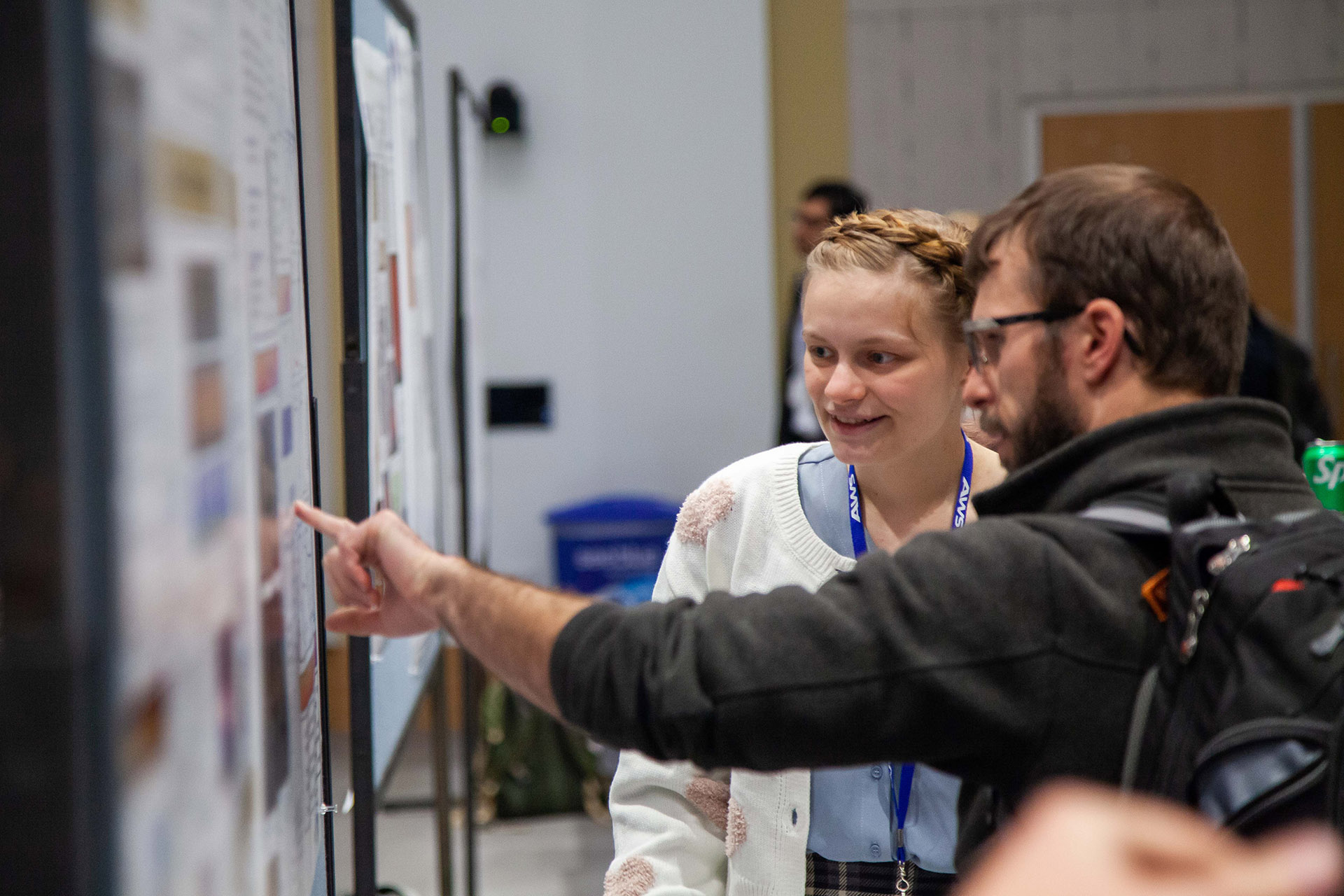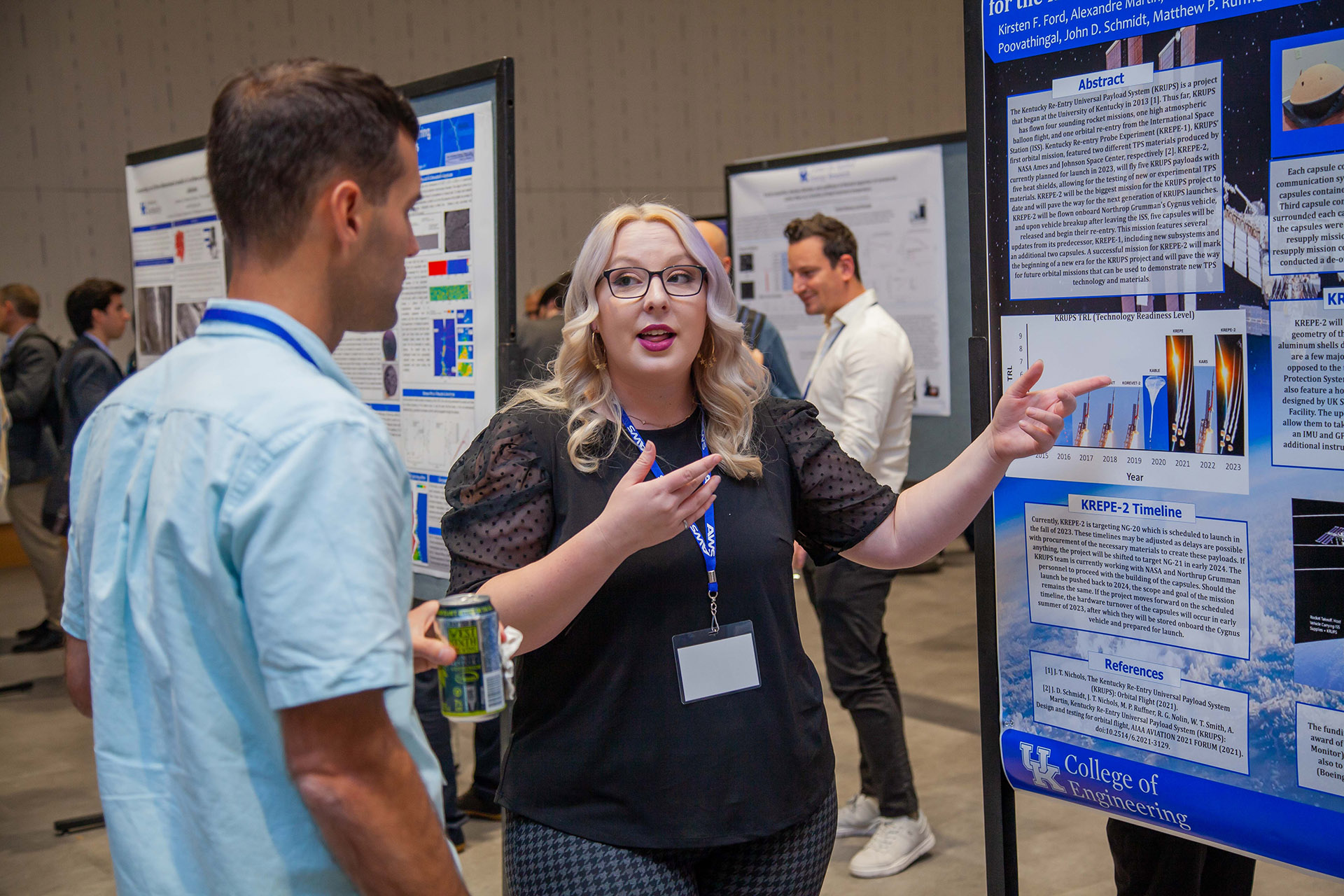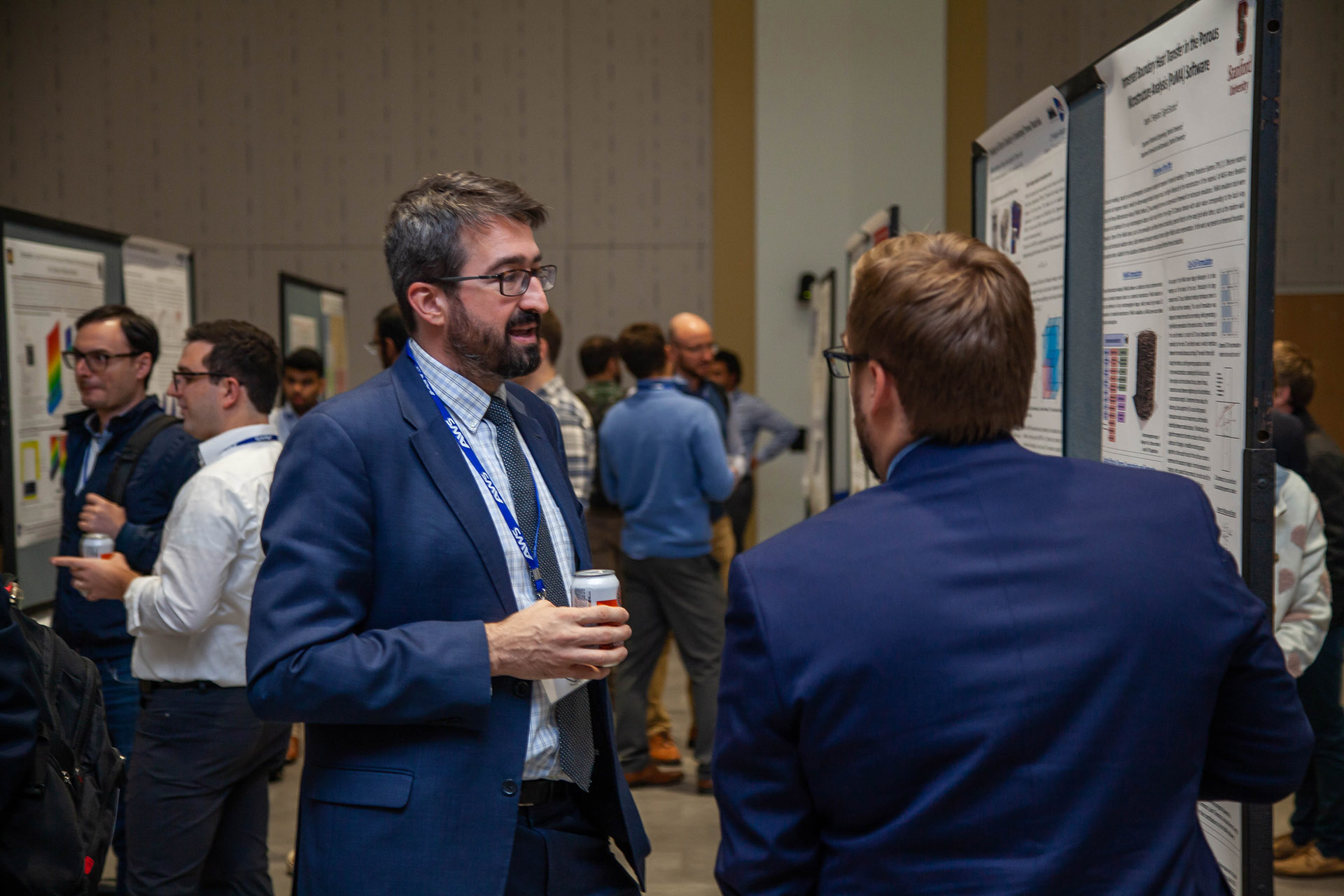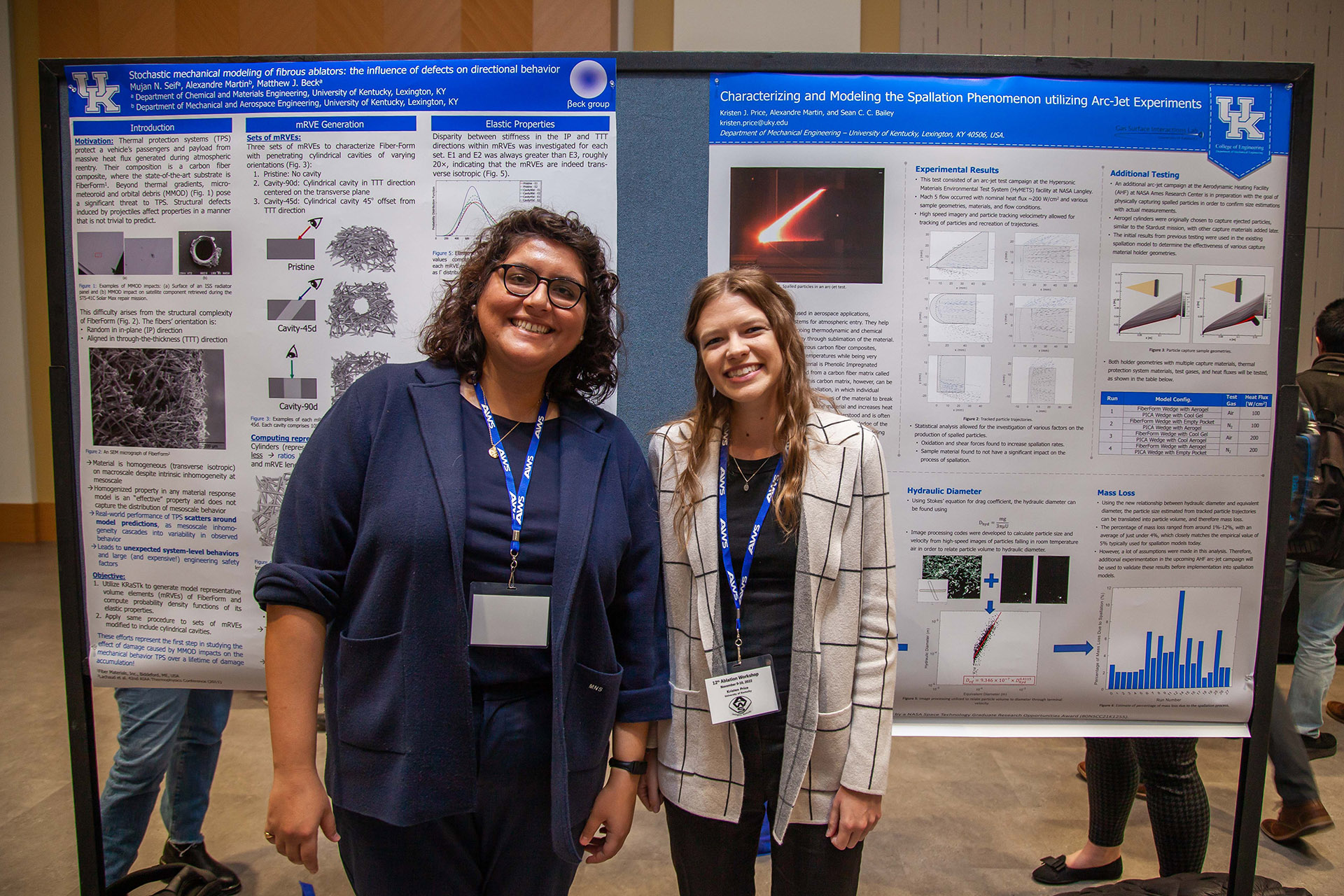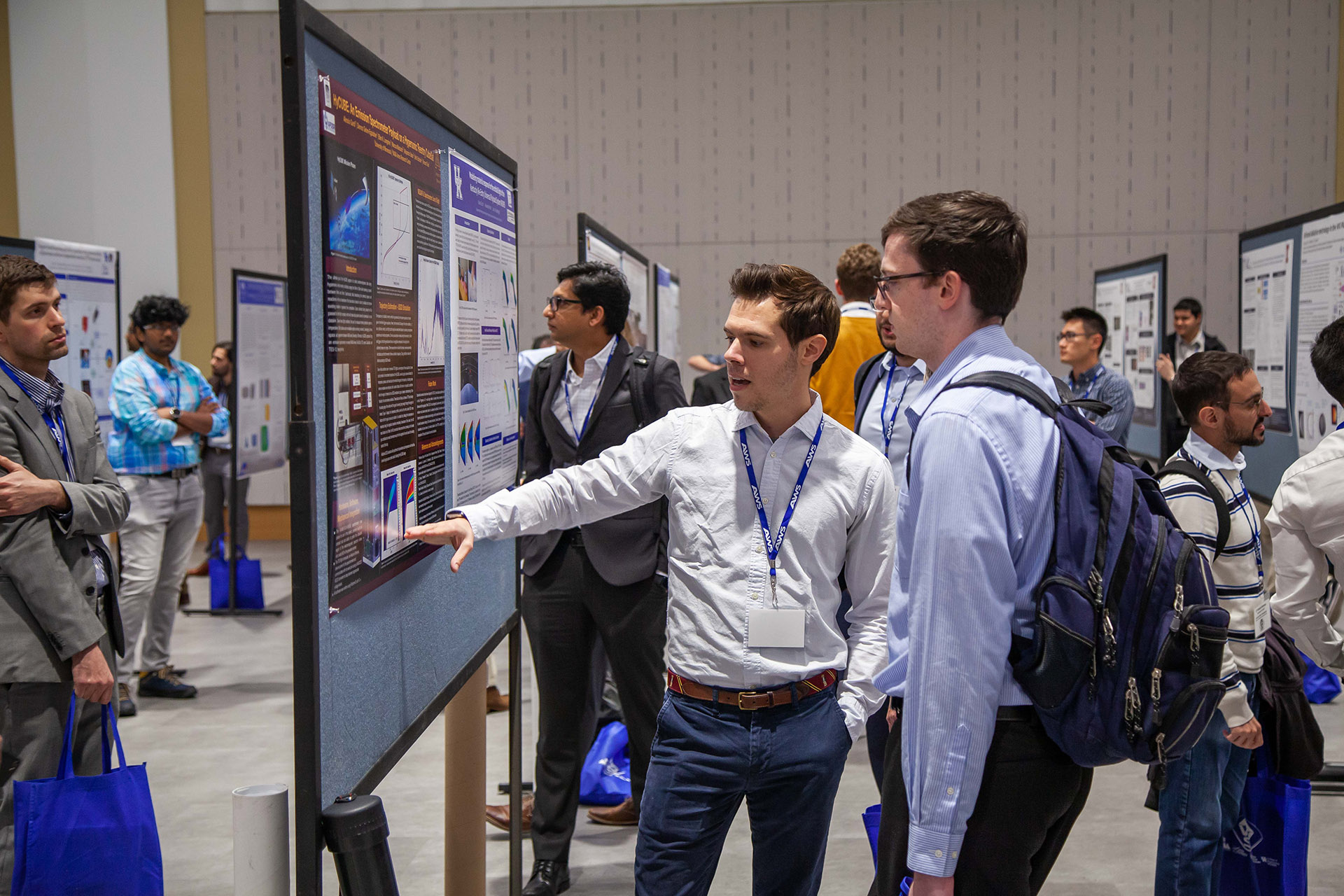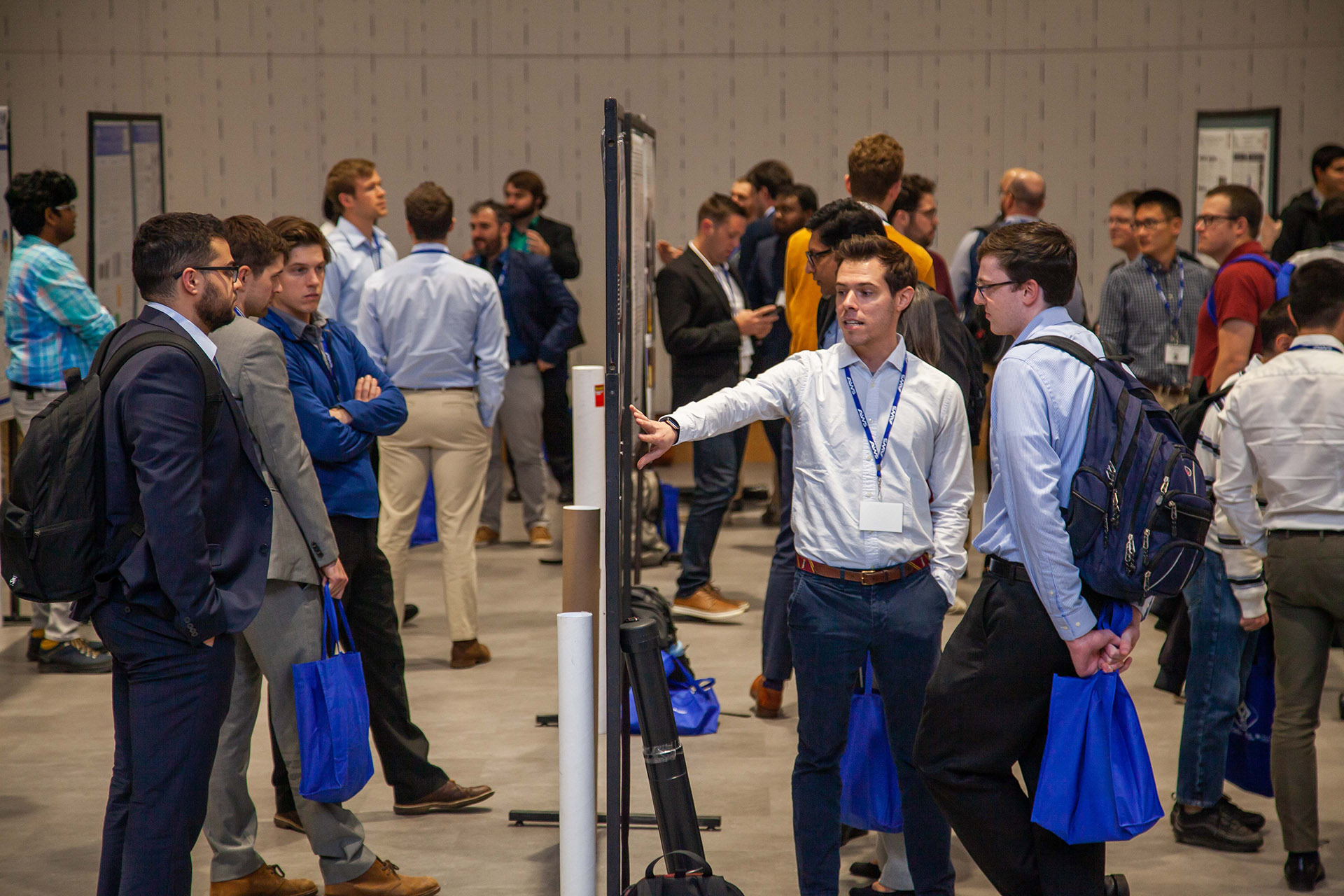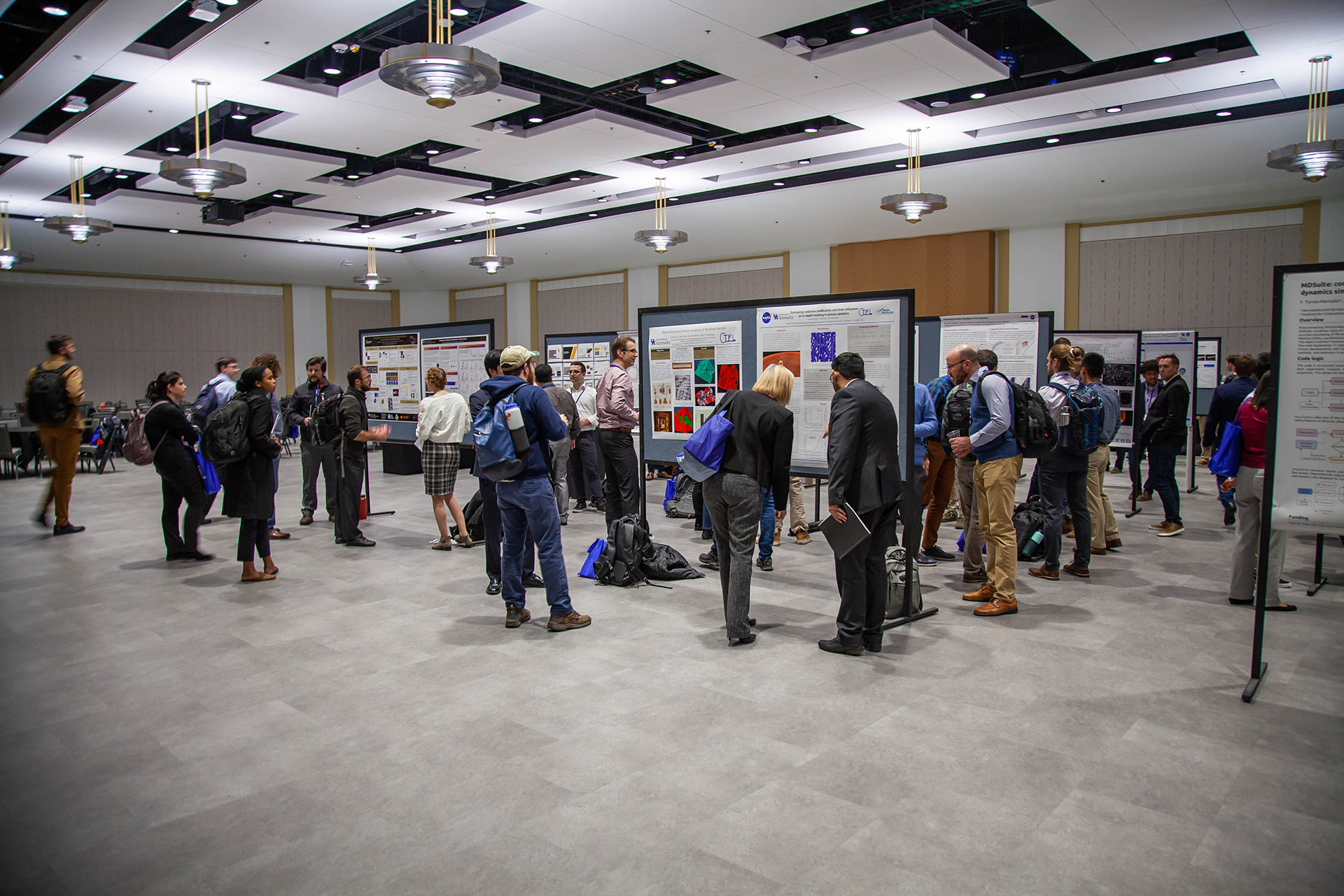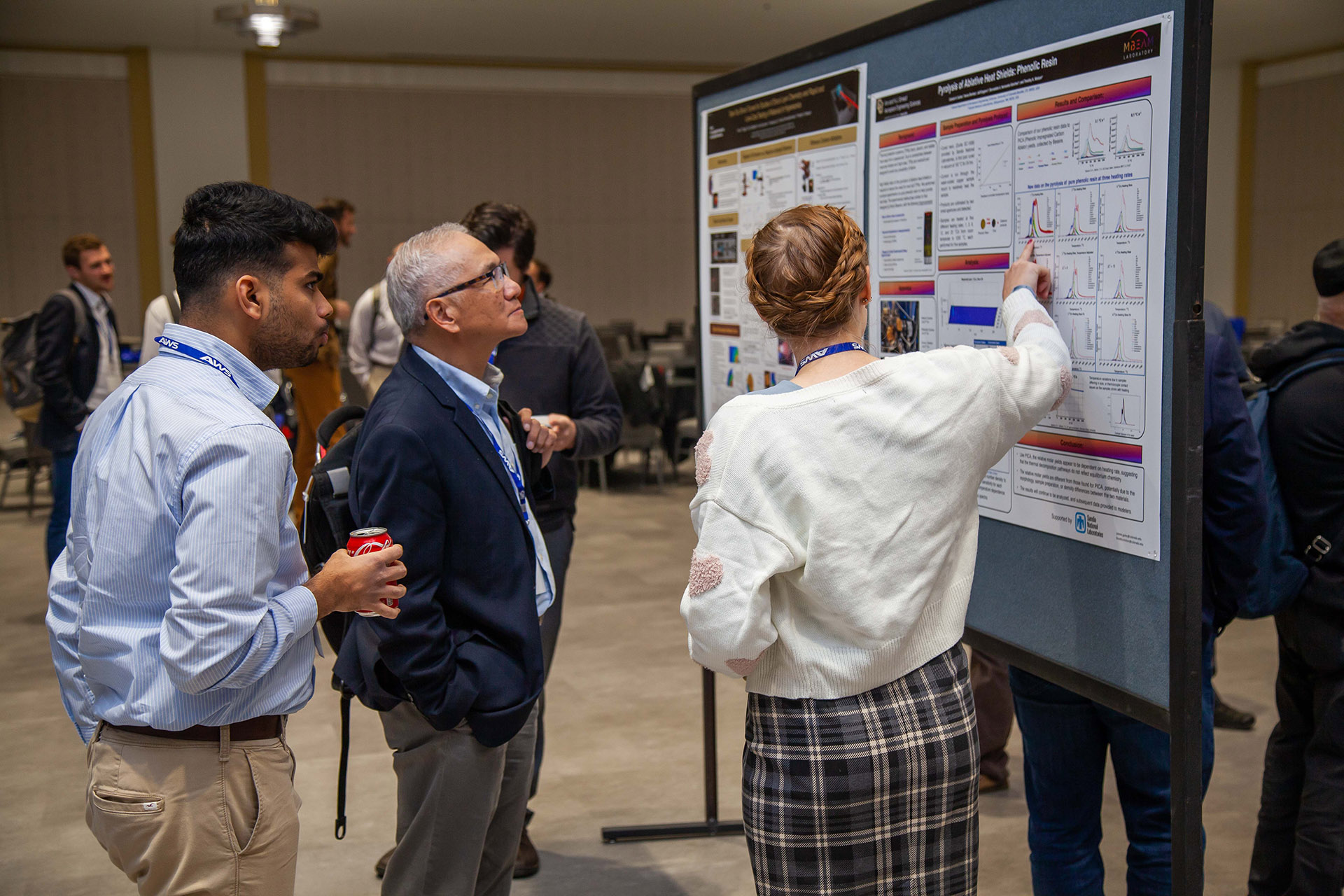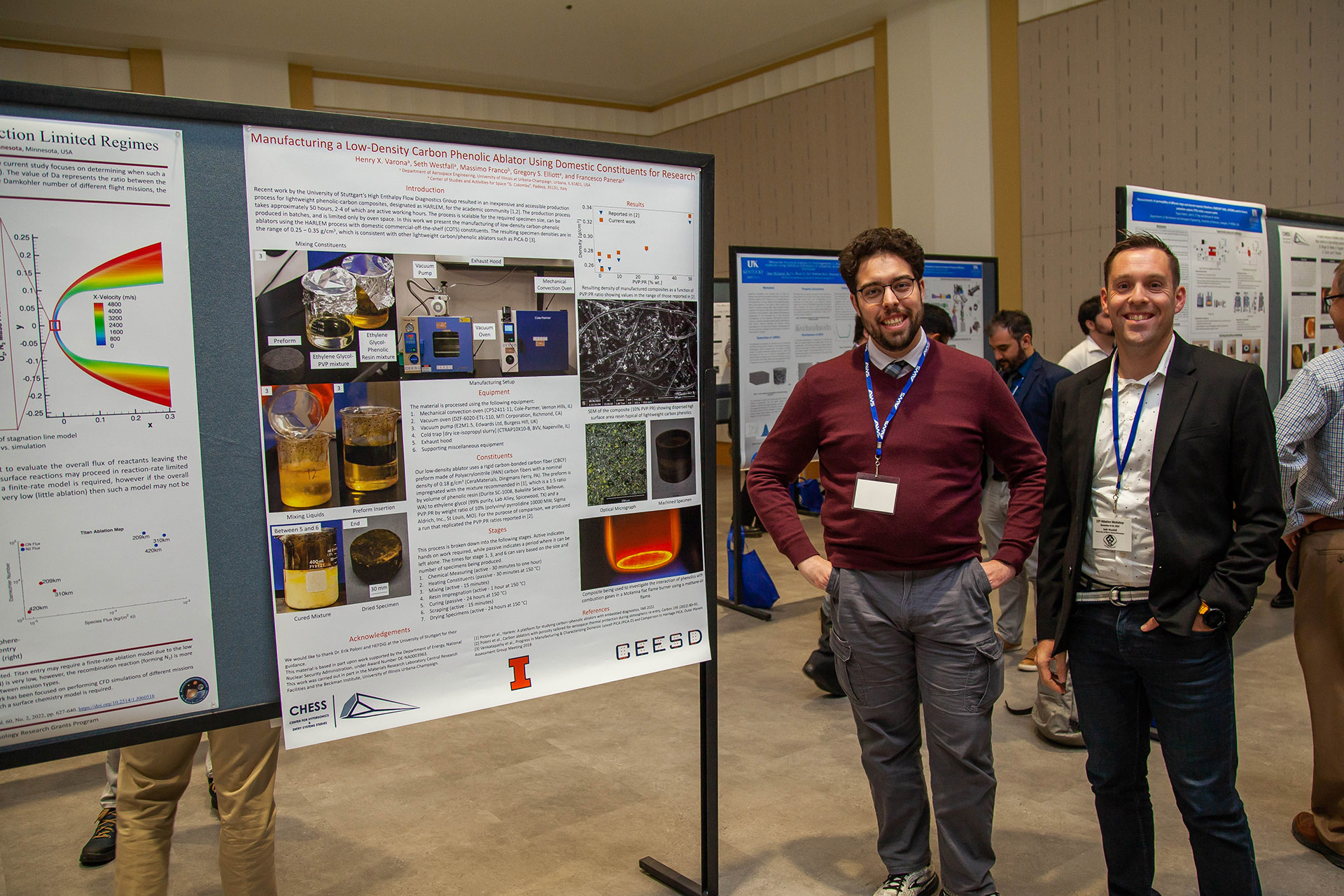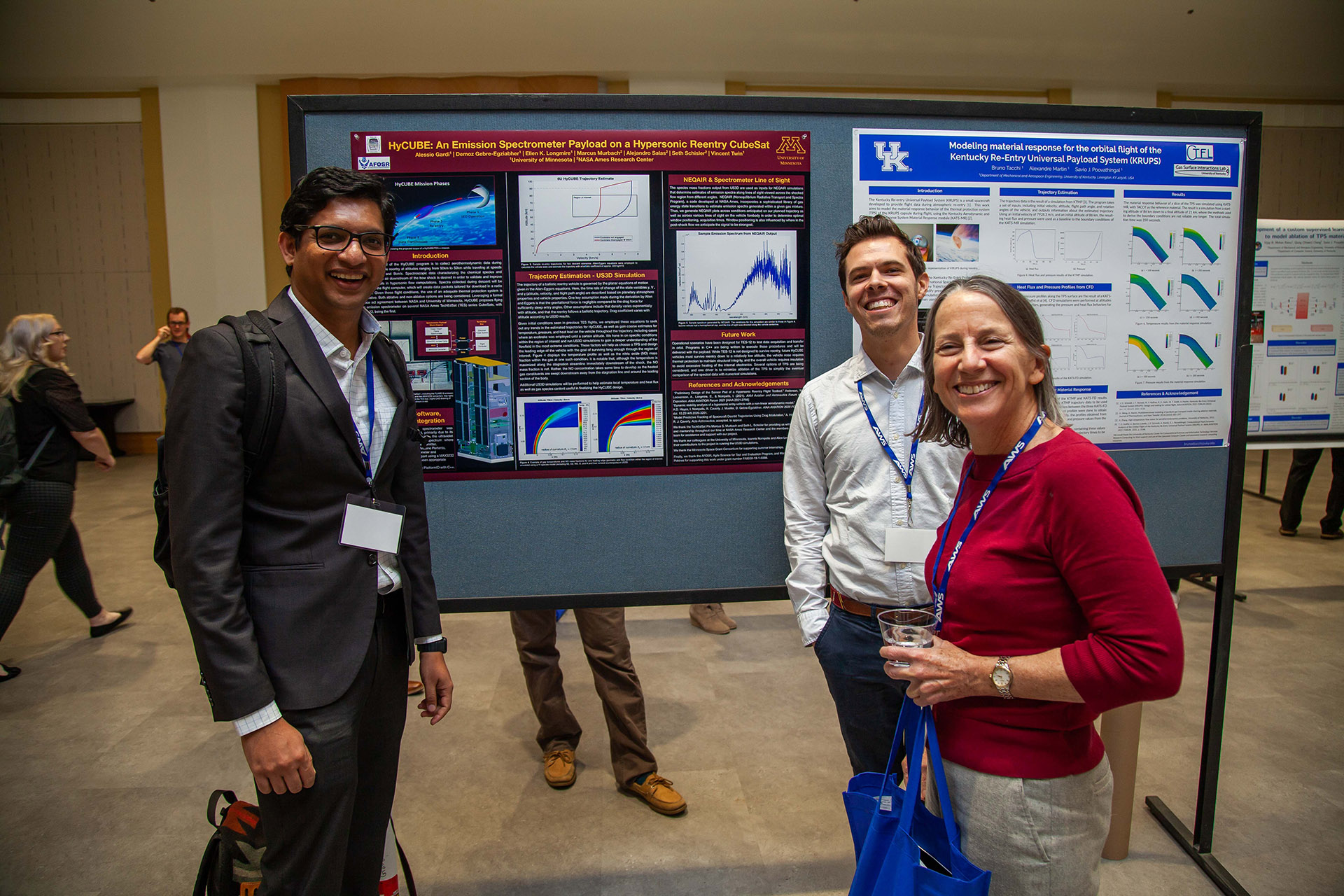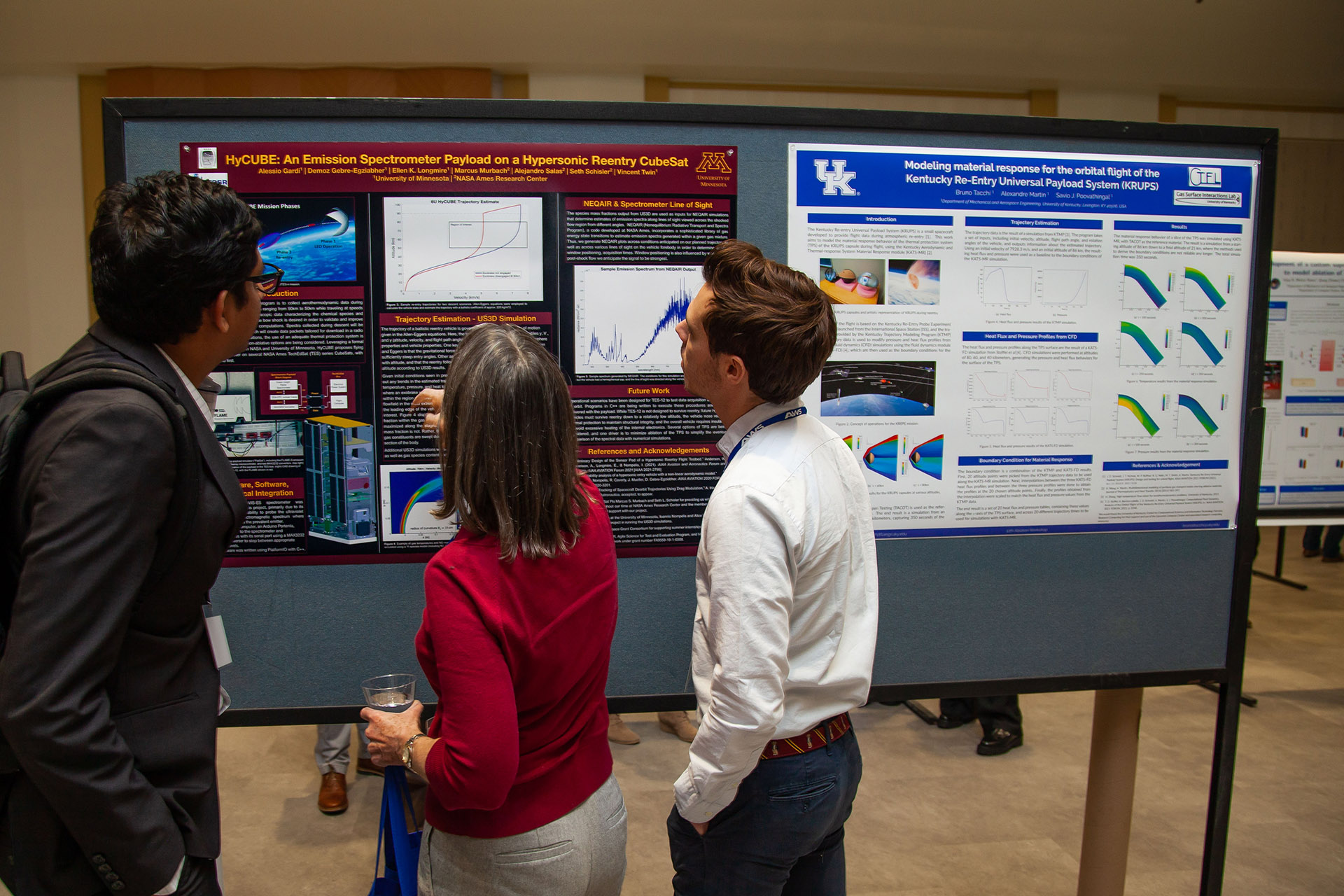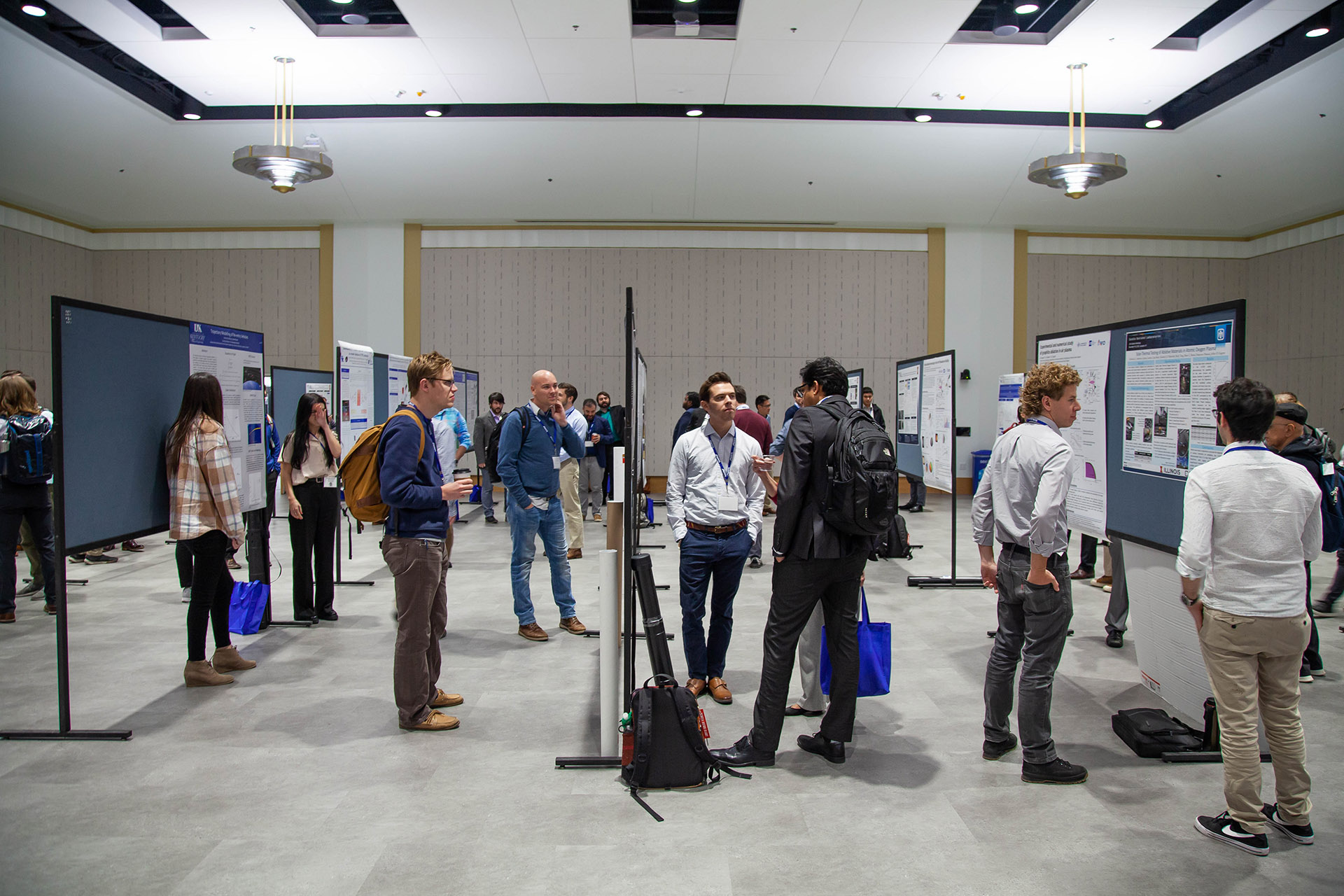UK College of Engineering Hosts International Ablation Workshop
November 17, 2022
The Ablation Workshop took place on the University of Kentucky's campus on November 9-10, 2022. An international research community of scientists, engineers and students working on ablative thermal protection systems attended the event.
Ablative thermal protection systems are commonly used as protection from the intense heat during re-entry of a space vehicle, in rocket nozzles, or during hypersonic flight, and have been used successfully on many missions.
More than 150 participants from government agencies, the private sector and students from university systems worldwide gathered to share new ideas and techniques and discuss challenges faced in adapting existing strategies to address new applications.
"This is really a cool collection of people that come together once a year," said Ethiraj Venkatapathy, chief technologist of the Entry Systems and Technology Division at NASA Ames Research Center and one of the original organizers of the workshop. "The first ablation workshop took place in 2008, partly because NASA was starting to think about going back to the moon, which would require a new generation of researchers to develop ablative thermal protection systems. You can see this new generation of researchers right here at the University of Kentucky in the KRUPS project."
In December 2021, the Kentucky Re-entry and Universal Payload System (KRUPS) released capsules from the International Space Station resupply mission. The capsules became the first university-built entry capsule to successfully transit a planetary atmosphere, the first time a university flew a hypersonic vehicle, and a 3D-printed heat shield flew on an entry mission. KRUPS successfully provided real-flight temperature data that will be used to design more efficient and effective thermal protection systems.
Eric Stern, a research scientist at NASA Ames Research Center, shared how important the University of Kentucky is for building new talent in this field. "Aside from having several leaders in the field, such as Professor Alexandre Martin and Savio Poovathingal, the University of Kentucky has been a well-earned reputation for producing hypersonic talent."
"This event is not just about reporting on the latest discoveries, it's also about inspiring the next generation of students," said Savio Poovathingal, assistant professor in the UK Department of Mechanical and Aerospace Engineering. "Imagine a young student reading about the Mars mission and the people involved, and then those same people are sitting next to you at lunch, attending your talk or your poster to learn about your research. That's what this workshop does for the students."
